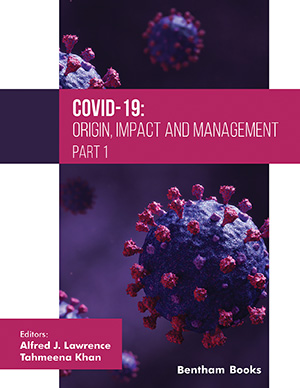Abstract
Air pollution is presumed to exacerbate the COVID-19 pandemic. Previous studies have emphasized that particulate matter in the air increases the virus’ infectivity and disease lethality. A study was undertaken to inspect if short-term exposure to pollutants during firecracker burning on Diwali, 2020, contributed to COVID mortality rates. Here, air quality variation was monitored concerning PM2.5 and PM10 from 4th- 21st November 2020 in the six most polluted cities of North India viz. Delhi, Lucknow, Greater Noida, Bulandshahr, Ghaziabad and Muzaffarnagar; Focussed largely on measuring pollutants' concentration pre, post and during the Diwali period, significant short-term variation in the AQI was observed during the night of Diwali which remained constant until the next day. The hazardous values recorded for AQI during the Diwali period indicated non-compliance with the ban imposed by the government on burning firecrackers in 2017. The study established a weak positive correlation between temperature and AQI, whereas a negative correlation was established between AQI and humidity. In the aftermath of the COVID-19 pandemic, short-term variations in air quality may prove to be critical.
Keywords: Air Pollution, Air Quality Variation, AQI(Air Quality Index), Correlation, COVID-19, Covid Mortality, Disease Lethality, Diwali, Exacerbate, Firecrackers, Firecracker Burning, Hazardous, Infectivity, Inspect, North India, Particulate Matter, Pollutant, Short-term Variation, Study, Virus.






















